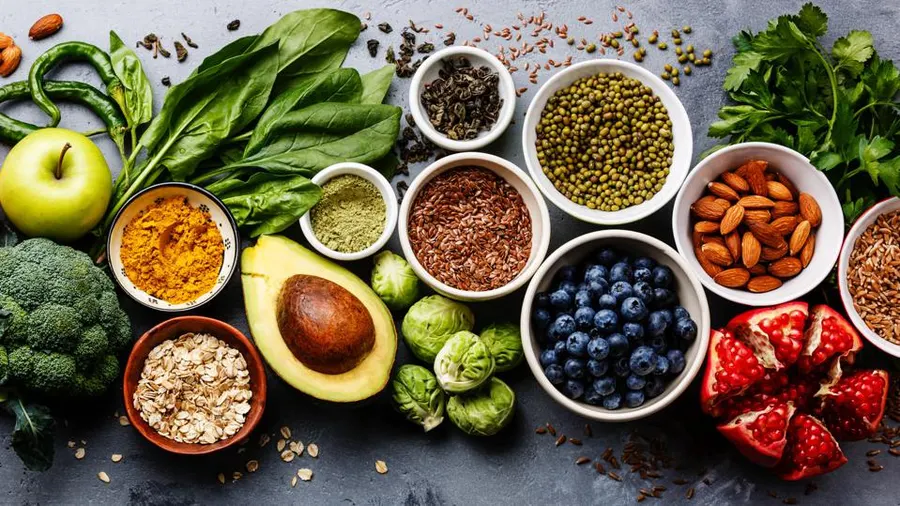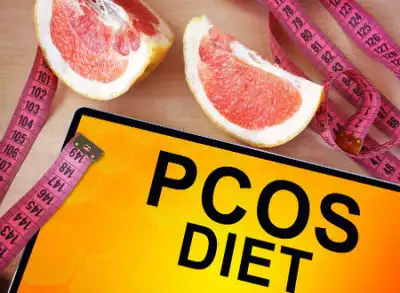Signs and Importance of PCOS & PCOD diet plan
The prevalent complicated hormonal disorder known as Polycystic Ovary Syndrome (PCOS) impairs the function of the ovaries. Lifestyle decisions including the kinds and quantities of meals you eat and the amount of exercise you do can help with symptoms. This Food Reality Sheet will discuss PCOS and how lifestyle modifications can help control it.
What signs of PCOS are present?
Millions of individuals in the UK suffer from PCOS, a condition (a group of symptoms) that affects up to 10% of those who have ovaries. A PCOS diagnosis may result from the presence of more than one of the following indications and symptoms:
The ovaries contain several fluid-filled sacs called follicles that encircle the eggs. They are not cysts, despite the term "polycystic ovaries." These irregular or non-existent periods, which result from the ovaries' irregular release of eggs, are identified by an ultrasound examination of the ovaries.
Increased or increased activity of androgens, a class of hormones also referred to as male-type hormones like testosterone. To find these, your doctor might do a blood test on you or question you about any symptoms you might be having.
Symptoms based on PCOD & PCOS diet consultation in Mumbai:
· Sporadic or non-existent times
· Thinning hair on the scalp, especially on the chest, stomach, or face; male pattern baldness
· Pimples
· Food cravings, especially for foods high in sugar or carbohydrates
· Both troubles gaining weight and/or ease of weight loss
· Issues related to fertility (difficulty getting pregnant)
· Anxiousness and depression
· Gorge on food
· Issues with body image
· Sleep apnea or sleep disruptions
A lot of these signs are associated with elevated levels of hormones like insulin and androgens. A hormone called insulin facilitates the body's usage of food as fuel. Because up to 80% of PCOS patients are sensitive to the adverse reactions of insulin, their blood contains higher levels of insulin as a compensatory measure. Moreover, insulin raises testosterone levels. Even though testosterone is frequently associated with men, all women require a small quantity of it. Even a small increase in testosterone can throw off the body's hormonal balance and cause acne, excessive hair growth, and irregular menstruation.
Diabetes and heart disease are long-term health issues linked to PCOS, especially if you suffer from any of the subsequent conditions:
· Elevated blood pressure and blood fat levels
· A large amount of fat around your centre (central adiposity) insulin resistance inflammation
PCOS can be managed with a mix of medication, lifestyle modifications, and cosmetic procedures (such permanent hair reduction, threading, and waxing) to remove excess hair. While you might have learned about several fad diets to manage PCOS, international standards advise following good lifestyle practises, such as eating a balanced diet and doing frequent exercise. Nonetheless, there isn't just one diet that works best for PCOS. A PCOD & PCOS dietician in Mumbai, Dt. Rukhsana Azhar, from Diet4U Wellness can assist you in developing personalized healthy lifestyle practises that will help control the symptoms of PCOS.
How might diet aid in the management of PCOS symptoms?
A few general nutrition guidelines can help reduce PCOS symptoms.
Consume food frequently
Eating frequently lowers insulin resistance by maintaining steady blood sugar levels. In order to achieve a healthy diet, it's a fantastic idea to start with frequent, diverse, and balanced meals and snacks.
Select whole grains and carbs with a low GI
The Glycaemic Index (GI) is a rating system that indicates the pace at which different carbs cause your blood sugar to rise. Low GI diets, which consist primarily of low- or moderate-GI foods that raise blood sugar levels gradually, can help lessen PCOS symptoms. This is due to the fact that consuming low-GI meals can lower insulin resistance and raise insulin levels.
It has been demonstrated that low GI diets enhance the body's response to insulin in PCOS patients, thus you could find it beneficial to replace some high GI items with low GI foods. Consuming low-GI meals is associated with more regular menstruation as well. The GI of many wholegrains is low.
Eat well-balanced meals
Because adding fats and proteins to low-GI carbohydrates might lessen the effect of the entire meal on the level of blood sugar, eating balanced portions of food can also help to lower insulin levels. We refer to this as glycaemic load (GL). A balanced diet consists of a variety of low-GI fruits and vegetables, high-fiber, low-GI carbohydrates, protein-rich foods, and healthy fats. This lessens cravings and helps you feel fuller for longer.
Add omega-3 fatty acids according to the PCOD & PCOS Dietitian Rukhsana Azhar
Omega-3 fats, which are abundant in oily fish, can help reduce inflammation, which is frequently observed in PCOS patients. Aim for one or two servings of oily fish every week. Make an effort to incorporate some plant-based omega-3 sources, such as walnuts, chia and flaxseeds, seaweed, and algae.
It is especially crucial to have a diet rich in nutrients and to take folic acid supplements if you are attempting to conceive. Discuss this with your physician or dietician.
Does it matter how much weight you have?
People of various sizes can be impacted by PCOS. It can be difficult for many PCOS sufferers to lose weight, but if you are overweight, it might help with symptoms. PCOS-related food cravings, insulin resistance, and binge eating might make it difficult to lose weight. It's critical to avoid restrictive or fad diets. Rather, attempt to concentrate on what you should include in your diet; an excellent place to start is by attempting the suggestions above. The most crucial thing is to choose something that fits your lifestyle and doesn't deprive you of essential nutrients or foods.
Moving around to control PCOS is a part of diet plan for PCOD & PCOS in Mumbai
Being physically active has several advantages, but the one that is most pertinent to PCOS is that it enhances your body's reaction to insulin. It has been demonstrated that many forms of movement can treat PCOS. These include cardiovascular and HIIT training, strength/resistance training, and kinder types of exercise like yoga. Finding something you enjoy and that works with your lifestyle is key. According to guidelines, one should aim for 150 minutes a week of moderate-intensity exercise or 75 minutes a week of more intense activity, plus twice a week of strength and resistance training.
A few tips
· Instead of concentrating on items to restrict, try focusing on foodstuffs you might want to include in your diet.
· Make balanced, healthful meals a frequent goal.
· Select whole grains like oats, muesli, or whole-grain bread, as well as high-fiber and low-GI carbs.
· Incorporate protein-rich foods like seafood, eggs, meat, dairy, beans, lentils, tofu, nuts, and seeds into your meals to balance them out. You may also include beneficial fat sources in moderation, including avocados, nuts, and seeds, olive oil, and rapeseed oil.
· Aim to consume oily fish together with additional plant-based omega-3 fatty acid sources including walnuts, chia, algae, seaweed, and flaxseeds.
· Eat a range of fruits and vegetables, aiming for low-GI selections whenever feasible.
· Though difficult to lose weight, PCOS may lessen symptoms
· Find a form of exercise you enjoy, and stick with it.
· Make sleep and rest a priority, and try to avoid stress.
· Supplementation might be helpful for certain PCOS sufferers. Before beginning a supplement, talk about supplementing with nutrients with your physician or dietician.






